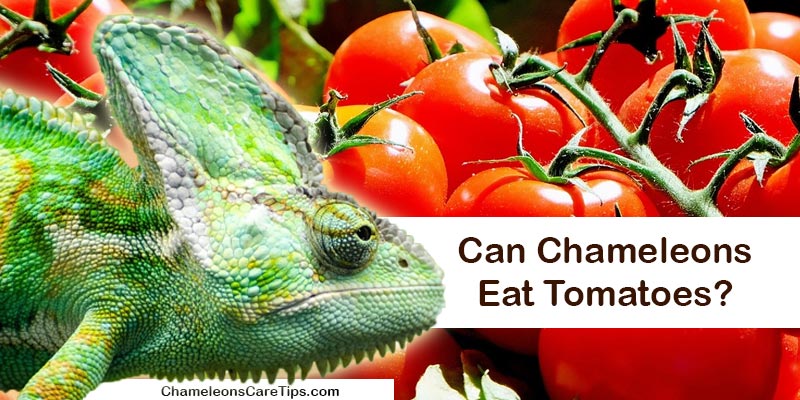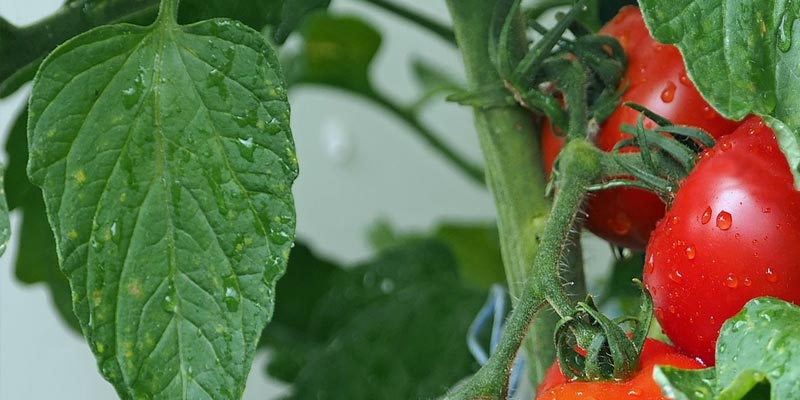Chameleons—fascinating, color-shifting reptiles that dwell in trees with curly tails and tongue-twisting feeding habits—are recognized for their diverse diets within the wild. Pet owners of these chameleons often ponder over the scope of their pets’ dietary preferences beyond the usual insect-based diet; they pose questions such as: Can chameleons eat tomatoes?
Indeed, chameleons can consume tomatoes; however, these should only supplement their primary diet–that of insects and small invertebrates. It is crucial to note: bestow tomatoes upon your chameleon sparingly and with meticulous care. While non-toxic to chameleons, due to the high acid content in them–tomatoes ought to be administered judiciously so as not to upset their gastric system.
Table of Contents
Do Chameleons Face Any Risks When Consuming Tomatoes?
Chameleons can consume tomatoes safely, provided they do not ingest them in excess amounts; an overindulgence could potentially disrupt their renal system — leading to conditions such as kidney stones because of the vegetables’ high oxalate content. Additionally, the pronounced acidity level within tomatoes could upset a chameleon’s delicate intestinal equilibrium: symptoms like loss of appetite and diarrhea may appear as a result.
Health Benefits Garnered from Tomatoes
Gaining a comprehensive comprehension of the potential perils directly associated with administering tomatoes as part of your chameleon’s dietary regimen is undeniably crucial; however, it behooves us not to overlook or dismiss outright the conceivable health advantages that may be derived from these vibrant fruits.
Notably, tomatoes serve as an excellent source of vitamin C — a paramount component imperative in fortifying and bolstering your pet chameleon’s immune system against various pathogens.
Moreover–for added nutritional value–they proffer considerable amounts of other formidable antioxidants along with indispensable dietary fibers: essential elements that can significantly augment and amplify your cherished reptile companion’s overall well-being and longevity.
Can Baby Chameleons Consume Tomatoes?
Chameleons at the infant stage—much like their adult counterparts—can indeed consume tomatoes; however, due to their relatively smaller size and less developed digestive systems, it is advisable: to limit tomato consumption.
Chop this fruit into small manageable pieces: make sure these only represent a minuscule fraction of their diet.
Is It Possible For Chameleons To Consume Tomato Leaves?
Most animals, chameleons included, find the leaves, stems, and plants of a tomato toxic; these plant parts contain solanine: a poisonous alkaloid. Despite any potential benefits – they should avoid all components of this particular flora except for its fruit.
The Methodology of Feeding Tomatoes to Chameleons
The paramount concern when selecting tomatoes to feed your chameleon should always be their freshness; in addition, you must ensure they are thoroughly cleaned—metaphorically scrubbed of all impurities.
A significant factor that is often overlooked concerns the skin of the tomato: it’s advised to remove this as part of preparation since its texture and thickness may present a cumbersome challenge for your chameleon’s digestive system—a process not altogether unlike trying to swallow pieces whole cloth without first tearing them up.
Furthermore, thoughtful consideration should also be given to cutting these vibrant red fruits into manageable morsels—the size and age of your particular reptilian companion serving as key determinants guiding this culinary undertaking.
What is the Frequency of Tomato Consumption for Chameleons?
Acknowledging the potential risks associated with the overconsumption of tomatoes: it becomes imperative to restrict their intake to a monthly maximum of once or twice. The chameleon’s diet should predominantly comprise insects and other invertebrates; tomatoes, however–must only constitute an insignificant fraction.
Conclusion
In conclusion: introducing tomatoes into your chameleon’s diet, executed with an emphasis on moderation, poses no safety concerns; however, it demands careful scrutiny for potential health benefits and risks. A sporadic indulgence in a tomato—serving as a zesty treat—not only enriches the overall palatability of their food but also ensures they receive the diverse and balanced nutrition necessary for their well-being.


